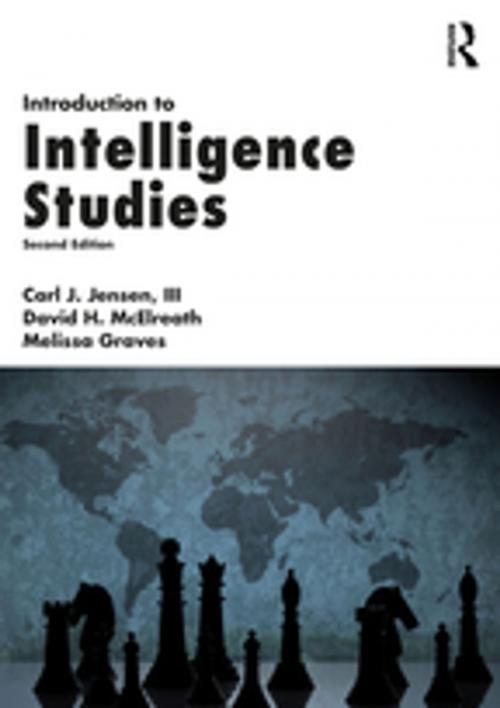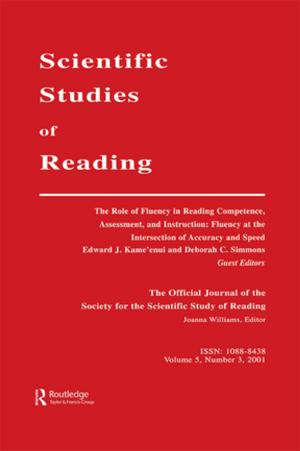Introduction to Intelligence Studies
Nonfiction, Social & Cultural Studies, Political Science, International, International Security, International Relations| Author: | Carl J. Jensen, III, David H. McElreath, Melissa Graves | ISBN: | 9781498738378 |
| Publisher: | Taylor and Francis | Publication: | November 22, 2017 |
| Imprint: | Routledge | Language: | English |
| Author: | Carl J. Jensen, III, David H. McElreath, Melissa Graves |
| ISBN: | 9781498738378 |
| Publisher: | Taylor and Francis |
| Publication: | November 22, 2017 |
| Imprint: | Routledge |
| Language: | English |
Introduction to Intelligence Studies provides a comprehensive overview of intelligence and security issues confronting the United States today.
Since the attacks of 9/11, the United States Intelligence Community has undergone an extensive overhaul. This textbook provides a comprehensive overview of intelligence and security issues, defining critical terms and reviewing the history of intelligence as practiced in the United States. Designed in a practical sequence, the book begins with the basics of intelligence, progresses through its history, describes best practices, and explores the way the intelligence community looks and operates today. The authors examine the ‘pillars’ of the American intelligence system—collection, analysis, counterintelligence, and covert operations—and demonstrate how these work together to provide ‘decision advantage’. The book offers equal treatment to the functions of the intelligence world—balancing coverage on intelligence collection, counterintelligence, information management, critical thinking, and decision-making. It also covers such vital issues as laws and ethics, writing and briefing for the intelligence community, and the emerging threats and challenges that intelligence professionals will face in the future. This revised and updated second edition addresses issues such as the growing influence of Russia and China, the emergence of the Islamic State, and the effects the Snowden and Manning leaks have had on the intelligence community.
This book will be essential reading for students of intelligence studies, US national security, and IR in general.
Introduction to Intelligence Studies provides a comprehensive overview of intelligence and security issues confronting the United States today.
Since the attacks of 9/11, the United States Intelligence Community has undergone an extensive overhaul. This textbook provides a comprehensive overview of intelligence and security issues, defining critical terms and reviewing the history of intelligence as practiced in the United States. Designed in a practical sequence, the book begins with the basics of intelligence, progresses through its history, describes best practices, and explores the way the intelligence community looks and operates today. The authors examine the ‘pillars’ of the American intelligence system—collection, analysis, counterintelligence, and covert operations—and demonstrate how these work together to provide ‘decision advantage’. The book offers equal treatment to the functions of the intelligence world—balancing coverage on intelligence collection, counterintelligence, information management, critical thinking, and decision-making. It also covers such vital issues as laws and ethics, writing and briefing for the intelligence community, and the emerging threats and challenges that intelligence professionals will face in the future. This revised and updated second edition addresses issues such as the growing influence of Russia and China, the emergence of the Islamic State, and the effects the Snowden and Manning leaks have had on the intelligence community.
This book will be essential reading for students of intelligence studies, US national security, and IR in general.















